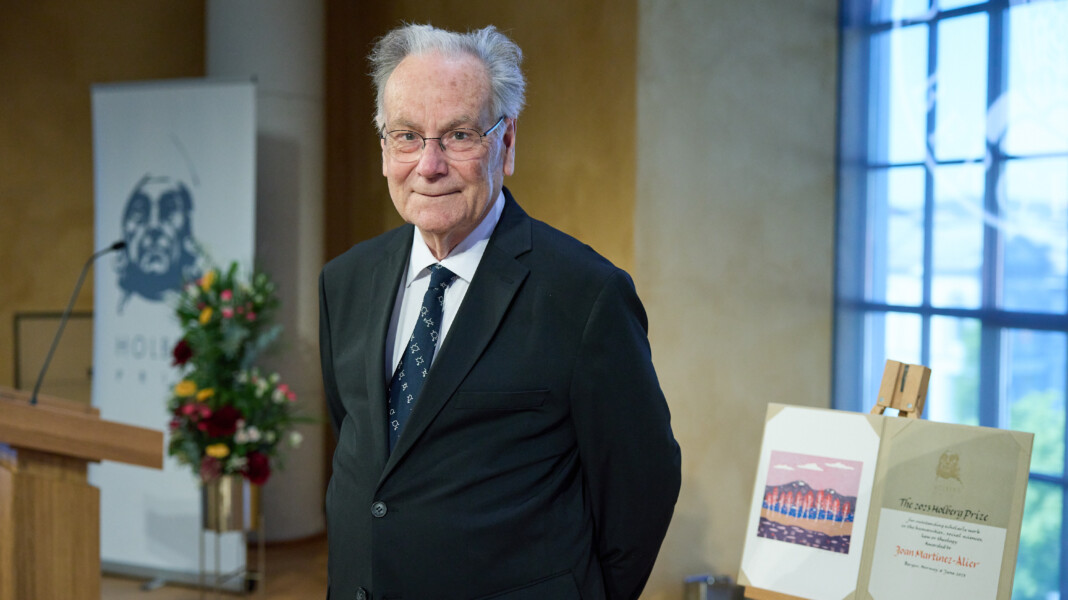
Av Forskerforum
Publisert 26. juni 2023 kl. 11:45
The 2023 Holberg Prize has been awarded to Joan Martínez-Alier, professor emeritus at the Institute of Environmental Science and Technology, Universitat Autònoma de Barcelona. While he is the first economist to win the prize, the jury has been criticised for honouring a scholar who operates outside mainstream economics.
I’ve actually had Scandinavian colleagues in the field of ecological economics and political ecology since the 90s. It took economists a long time to become interested in environmental issues. My education was in conventional economics, but I became concerned with the environment through my interest in land reforms in Latin America.
No, but we must pay enough attention to the damage caused by pollution. An economic analysis is not enough: we must include the physical and moral considerations. Not everything has a price tag; most economists don’t understand that.
This year’s wage settlement in the public sector went relatively smoothly, with Unio agreeing to a pay increase within a framework of 5.2 percent. This applies to all members of the Norwegian Association of Researchers (NAR) employed in the public sector. Yet with the Ministry of Finance’s recent prognosis of inflation reaching 5.4 percent, rising prices may well eat up the whole pay rise.
Gjert-Anders Askevold is chief union representative for NAR at Western Norway University of Applied Sciences and hopes for more money from the board for local negotiations. ‘If we don’t manage to maintain the purchasing power of our members, we risk losing their skill set,’ he says.
For Unio and the Federation of Norwegian Professional Associations, the entire pay increase is settled locally. For LO and YS members in the public sector, most of the pay increase has already been distributed through the central agreement. Unusually for Norway, pay rises may now depend on which union employees belong to.
Minister of Finance Slagsvold Vedum has provided over a billion kroner extra for research and higher education in the revised national budget. This is due to the government underestimating rising costs when the budget was passed for 2023. Universities and colleges will receive another 937 million kroner this year, and funding for the Research Council of Norway will increase by 200 million. Rector Svein Stølen at the University of Oslo is glad this compensation means that cuts won’t be needed after all. More money will also be set aside for international research programmes and other projects.
Last month Forskerforum wrote that the government is concerned about the increasing number of foreign PhD candidates at Norwegian universities. State secretary Hoel said the development was problematic, but also stressed that those here today should be made to feel welcome. The strongest reaction has been from the Progress Party (Frp), with Himanshu Gulatiinsisting there should be a majority of Norwegians benefitting from funded PhD programmes. The Conservative Party shares the government’s concerns, while the Socialist Left would rather focus on the benefits of international cooperation.